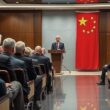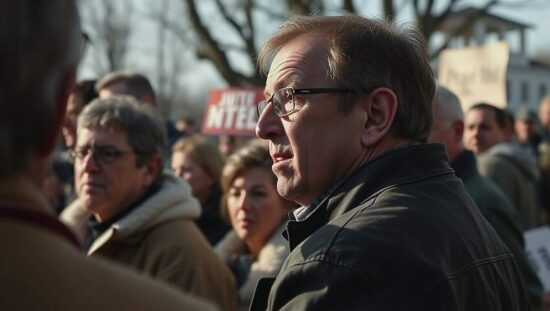A significant internal rift is emerging within Germany’s Left Party (Die Linke) following a contentious resolution passed by its youth wing, the Left Youth Solid (Linksjugend Solid), which asserts a “colonial and racist character” of the Israeli state project. Seventeen Left Party Bundestag (Parliament) members have publicly voiced strong opposition, raising concerns about the party’s direction and internal cohesion.
The resolution, adopted at the Left Youth Solid’s 18th federal congress last weekend, triggered the rebuke. The resolution, titled “Never Again to Remain Silent on Genocide” has prompted a sharply worded letter sent to party co-chairs Ines Schwerdtner and Jan van Aken and heads of the parliamentary group Heidi Reichinnek and Sören Pellmann. The letter’s authors express alarm that the party leadership appears to be downplaying the resolution’s implications and reports of intimidation tactics employed against youth delegates during the congress.
The signatories, including prominent figures such as former parliamentary group leaders Dietmar Bartsch and Gregor Gysi, former deputy group leader Caren Lay, Bundestag Vice President and former Thuringia Minister President Bodo Ramelow and North Rhine-Westphalia’s state leader Sascha Wagner, argue the resolution constitutes a departure from the party’s long-held commitment to a two-state solution in the Middle East, a cornerstone of its peace and justice platform. They frame the youth wing’s position as potentially destabilizing and undermining the party’s established consensus.
The letter doesn’t merely address the content of the resolution, but also the perceived lack of repercussions for the actions of those promoting it within the youth organization. The signatories demand that the party leadership demonstrates “political reliability and clarity” by firmly rejecting this new political orientation and associated culture, warning that failure to do so risks contaminating the parliamentary group, which comprises 64 members. The demand is for a clear and visible demarcation of boundaries, reinforcing the party’s existing framework and preempting a broader fracturing of its identity. The incident highlights a deeper struggle within Die Linke concerning its relationship with the Israeli-Palestinian conflict and the potential for internal factions to drive the party towards more radical positions.





